MercoPress. South Atlantic News Agency
Pacific Alliance
-
Thursday, July 2nd 2015 - 06:24 UTC
Chile insists with Pacific Alliance/Mercosur intelligent convergence
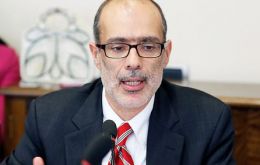
Chile will insist at the two-day Pacific Alliance summit which took off on Wednesday in Paracas, Peru, that a convergence with Mercosur is needed to ensure the integration of Latina America, and this is more evident now that both groupings face similar challenges such as falling prices for commodities, normalization of US monetary policy and an international context of slow growth.
-
Thursday, June 25th 2015 - 06:56 UTC
UK confirms interest in Latin America with the “Pacific Alliance Chevening scholarships”,
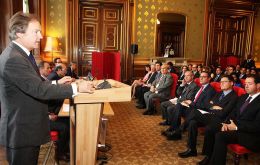
UK Foreign Office Minister Hugo Swire has introduced a new set of Chevening scholarships for Latin America, the “Pacific Alliance Chevening scholarships”, arguing that the success of the Pacific Alliance forms an integral part of Britain's re-engagement with the region.
-
Monday, April 20th 2015 - 23:41 UTC
Uruguay insists with the EU trade accord, even leaving Mercosur aside
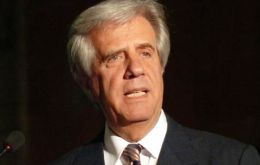
Uruguay's president Tabare Vazquez announced that when he meets with Brazil's Dilma Rousseff next month, they will consider as a priority how to get the Mercosur-European Union talks for a trade agreement rolling again.
-
Thursday, April 9th 2015 - 02:45 UTC
With the end of commodities prices 'super-cycle', UN panel lowers Latin American growth forecast to 1%

The Economic Commission for Latin America and the Caribbean (ECLAC) has revised downward its economic growth projection for the region in 2015, forecasting a 1.0% increase in the regional Gross Domestic Product (GDP), the United Nations organization said today in a press release.
-
Saturday, January 31st 2015 - 09:23 UTC
Falklands/Malvinas: Celac summit, including Commonwealth members, support Argentina's 'legitimate' claims

The Celac summit held in Costa Rica and which brings together all Latin American and Caribbean countries released a declaration expressing full support for Argentina's 'legitimate' rights over the Falklands/Malvinas, recalls that 2015 marks the 50th anniversary of Resolution 2065 (first UN Assembly General resolution on the Falklands dispute) and again call on the goods offices of Ban Ki-moon to help start negotiations on the Argentina/UK dispute.
-
Tuesday, December 9th 2014 - 23:03 UTC
Mercosur lacks discipline and has become a 'straitjacket' for trade negotiations
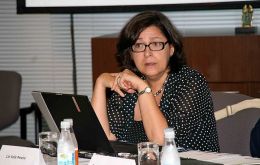
Mercosur must discipline and return to its origin as a customs union since it has become a 'straitjacket' for negotiations with other regional blocks, according to Lia Valls, foreign trade coordinator at the Brazilian Economics Institute belonging to the prestigious thinktank Getulio Vargas foundation.
-
Friday, November 28th 2014 - 06:30 UTC
Uruguay praises Mercosur as the “main buyer” of the country's exports
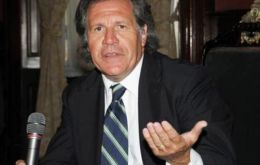
Uruguay’s Foreign Minister Luis Almagro highlighted that Mercosur is the “main buyer” of Uruguayan exports and strongly defended the country's presence in the regional group, a controversial issue since much of the country's political system and most of the business community want a more dynamic, open trade block.
-
Thursday, November 27th 2014 - 06:19 UTC
Mercosur/Pacific Alliance agree on flexible integration but no talk on tariffs
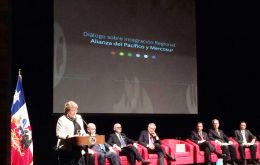
Mercosur and the Pacific Alliance explored this week in Chile the possibilities of a gradual, and flexible, integration but left aside all possibility of a near future agreement on tariffs.
-
Wednesday, November 26th 2014 - 09:41 UTC
Pacific Alliance and Mercosur represent 90% of Latam and Caribbean GDP
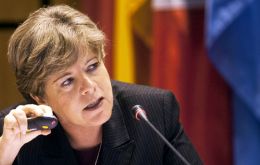
The Pacific Alliance (PA) and the Common Market of the South (Mercosur) combined represent more than 80% of regional foreign trade as well as population, and more than 90% of GDP and direct foreign investment flows, according to a new report by the Economic Commission for Latin America and the Caribbean (ECLAC).
-
Wednesday, November 5th 2014 - 04:06 UTC
“Mercosur and Pacific Alliance are not contradictory competing blocks”
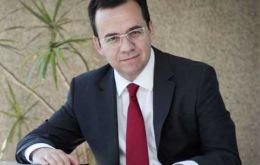
Mercosur and the Pacific Alliance are not contradictory competing blocks, and can advance towards a mutually beneficial convergence, said Chile's Economy minister Luis Felipe Cespedes during a trade and investment promotion seminar in Brazil.